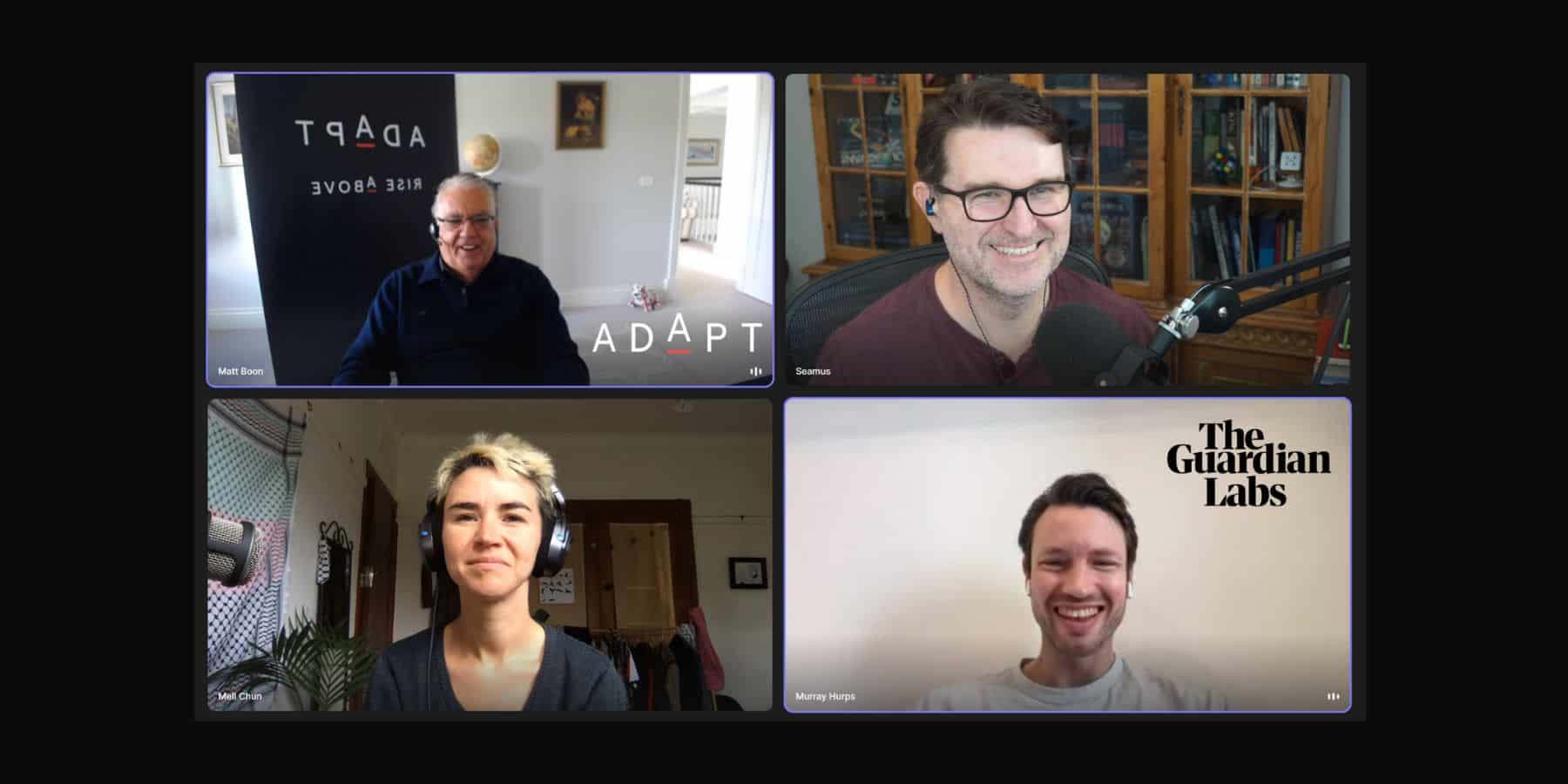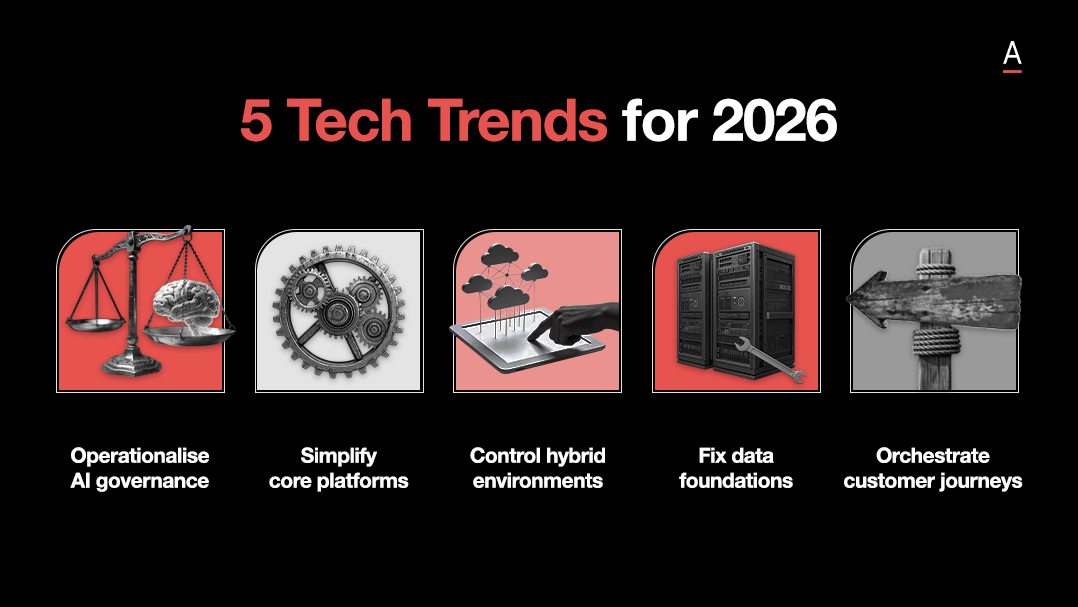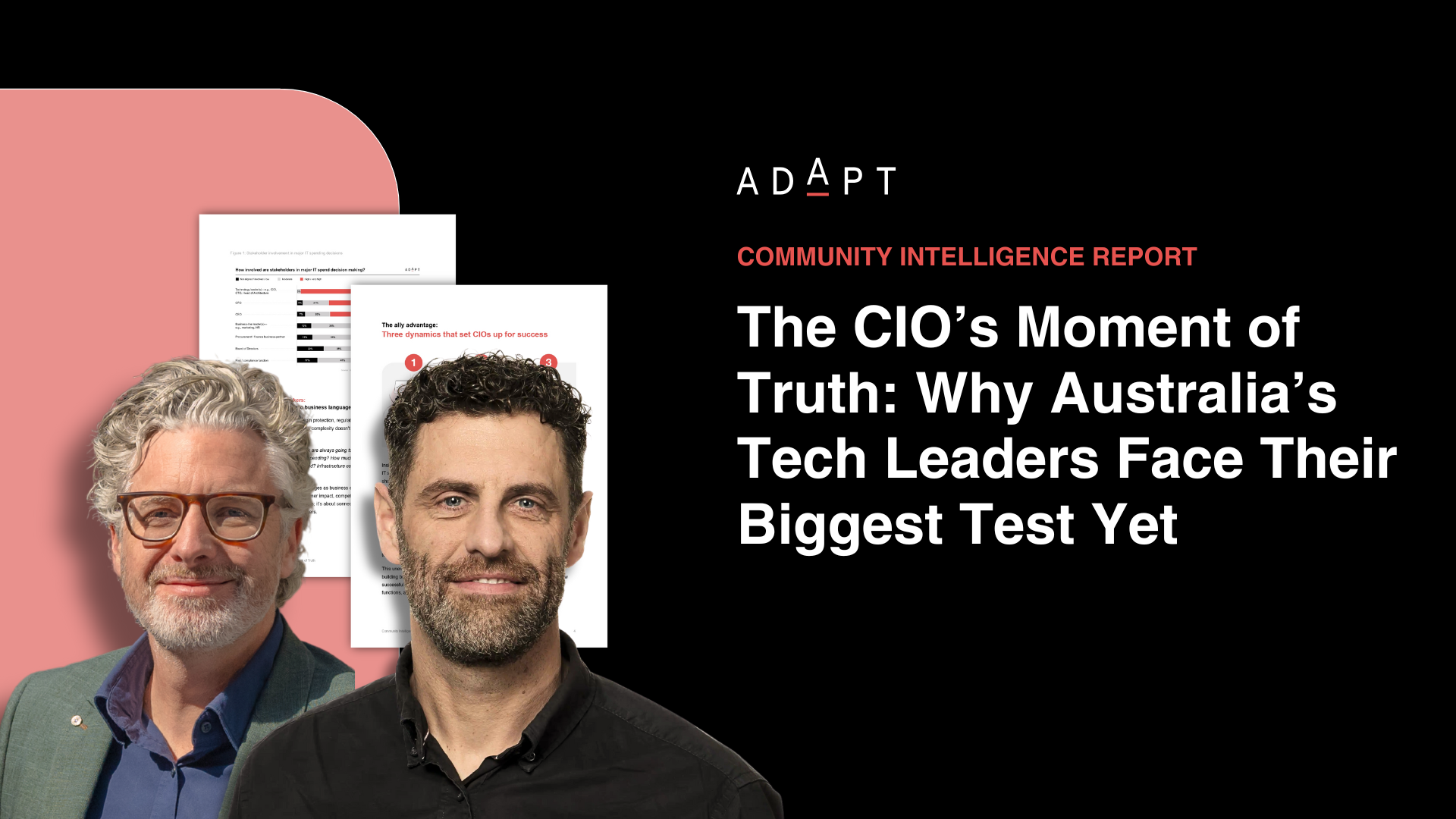With everything disrupted, going back to the same old thing is a losing strategy, as the most substantial companies reinvent themselves by embracing pandemic-driven change.
Many organisations worldwide have risen to the occasion, swiftly moving to new ways of delivering value that even the most extreme business continuity plans had not envisioned.
As an economy, how does Australia embrace a diverse array of businesses and opportunities to be ready for the many possibilities and challenges that lie ahead?
IT leaders and professionals had a lot to do with keeping businesses alive during the early days of the pandemic. Innovation opportunities are ready and waiting for companies to pursue. How can technology leaders continue the momentum? How can leaders prepare the workforce to excel in a post-pandemic work environment?
ADAPT’s Senior Research Director, Matt Boon, weighs in on the Guardian Labs Tech Pulse podcast, discussing the journey Australian leaders have ahead of them to create a culture of innovation.
Australia needs to catch up in terms of modernisation
For all the talk of transformation in recent years, the Australian economy is a long way behind the world when it comes to embracing new ideas and opportunities.
From hybrid working environments to skills challenges and enabling new opportunities in innovation, do Australian organisations create the ideal conditions for staff, businesses, and innovators for a more vibrant Australian economy?
There is a need for real transformation amongst Australian businesses, from the fundamentals of hybrid work to the need for more outstanding on-shore capabilities, considering recent combined geopolitical, environmental, and health crises.
The right ideas and skills hold the keys to Australia’s future. Experts from ADAPT share their thoughts on how Australian organisations set the conditions for staff and business leaders to move forward.
Do Australian organisations have a better understanding of digital transformation in the past two years? Has the idea become even more confusing?
What has remained unchanged over the past 2 to 3 years concerning digital transformation is that there still needs to be a solid understanding of the subject amongst Australian organisations.
For some organisations, digital transformation is all about driving greater operational efficiencies through high levels of digitised processes and systems. To other organisations, it’s simply to deliver a different customer and employee experience.
Leaders of Australian organisations still need to be aware of the value of any digital transformation initiatives and how it affects the bottom line, which stems from reasonably low levels of digital savviness amongst the board and leaders.
Heading 2023, the best Australian organisations will be digitised by approximately 50% to 60%.
Have Australian organisations better understood digital transformation over the past two years? Not necessarily.
Australia has a long way to go, but the positive takeaway is that local businesses recognise the need to transform and will work towards transformation however it looks.
How can leaders of traditional businesses be encouraged to embrace change and see the value in transformation?
According to ADAPT’s research, Australian companies with high levels of modernisation are ultimately innovating aggressively.
This high level of modernisation is demonstrated via accelerated levels of revenue attributed to the products and services released in the past three years.
It is high time Australian organisations reconsider these findings and how they can mould the organisation into a digital-first business.
Transformation needs to be aligned towards modernisation and enable innovation.
These three steps ensure organisations have the resilience and flexibility to evolve and pivot to adjust to market conditions.
What questions do business leaders need to explore to refocus their digital transformation to suit the new work style?
The future of work is already here
Before the pandemic, it was unthinkable to have more than half the workforce working remotely.
ADAPT research indicates that as we are heading into 2023, approximately 40% to 50% of staff will work remotely at any given time.
Leaders need to stop thinking about the future of work because the end is here and now, and things have changed forever.
The board will benefit from asking, ‘Are our leaders fit enable our people in this new world?’
Measuring people based on outcomes
Organisations also need to rethink how they measure people.
Traditionally, staff are measured on output rather than outcomes, and this practice still prevails today. Measuring work in the hybrid remote environment is much more challenging than measuring outcomes.
When we think about entrepreneurs, it is their outcomes that they have innovated through rather than their output that matters, and this should apply to staff as well.
An output might be a single deliverable in a year, but it impacts 20% of the business.
Leaders must ask what outcome they want in digital transformation and how it will align with business objectives.
How do organisations enable their leaders to measure people on outcomes rather than output?
And when thinking about outcomes, are the leaders delivering good experiences for the workforce, both internally and externally?
Digital executions to digital transformation
Morphing from digital execution to actual digital transformation is crucial.
Over the past two to three years, when organisations think about digital transformation, a lot believe that it is simple as doing a particular action and then ticking a box.
In reality, true transformation is ongoing and constant. There is no end game for it.
The pandemic showed the world that there is a need to strive to be competitive constantly.
Digital transformation starts with innovation.
How can organisations automate and do things as efficiently as possible?
How can organisations enable the experiences staff and customers alike are looking for?
A changing global market
Turbulent times plague economic forecasts today.
Issues like geopolitics, climate change, and the ongoing COVID-19 pandemic contribute to an unprecedented future that requires agility and solid organisational leadership to tackle challenges.




























